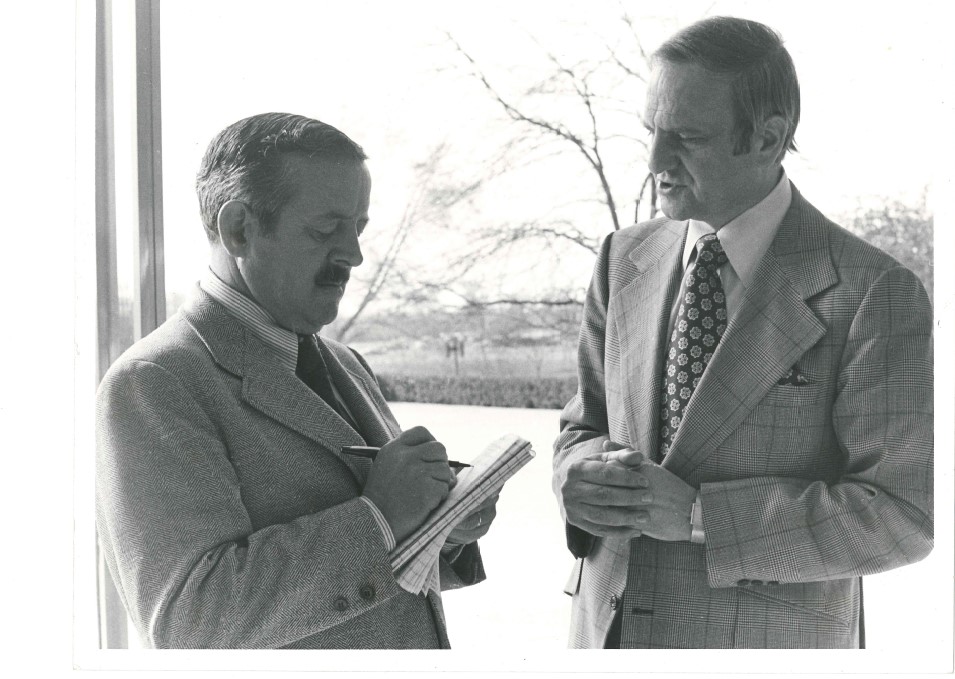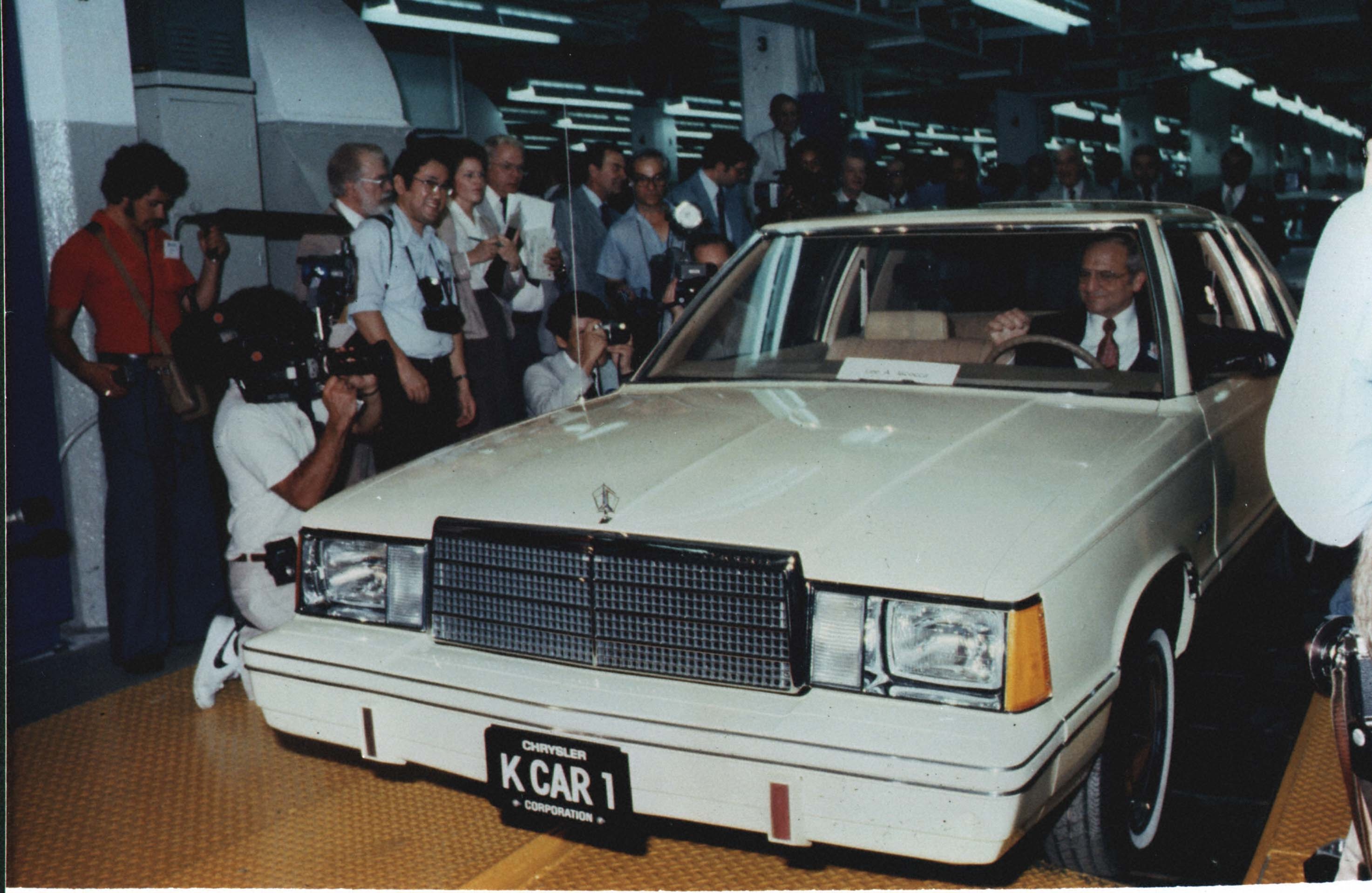Editor’s Note: Dave Smith has covered Lee Iacocca’s career since 1966 and most recently interviewed him in 2006.
Lee Iacocca, arguably the most famous American industrialist of the last half of the 20th century, died Tuesday in Los Angeles after a long illness. He was 94.
Iacocca will be remembered for bringing Ford’s sporty Mustang to market and for saving Chrysler Corp. from bankruptcy.
The son of Italian immigrants, he joined Ford in 1946 in his hometown of Allenton, PA, and by 1970 had climbed to president.
On July 13, 1978, he was summarily fired by Chairman Henry Ford II. No plausible reason was given. “Sometimes you just don’t like somebody,” said HF II, which seems puzzling since he had moved Iacocca quickly up the executive ranks.
Ford watchers suggested the chairman feared Iacocca had gained too much power, surely not acceptable in the family-controlled company.
Others speculate HF II was fed up with the wave of adverse publicity Ford endured related to deadly rear-end crashes of the subcompact Pinto, which was known internally as “Lee’s Car.” Only a month before Iacocca got his walking papers, Ford recalled 1.5 million 1971-’76 Pintos and 30,000 sister Mercury Bobcats to fix the problem.
Iacocca soon went on to head Chrysler, where he famously engineered a government bailout to save the No.3 U.S. automaker in 1979. But he never forgave HF II for humiliating him by shuffling him off to a dingy office in an old Detroit warehouse on the day he was given the boot.
On a personal note, the late Jim Jones, Newsweek’s Detroit bureau chief, and I showed up early the next morning, after he was fired, at his Bloomfield Hills, MI, home. We both had interviewed him countless times and had a good relationship with him so we hoped to get a scoop.

Longtime Wards editor Dave Smith interviewing Iacocca in 1970s.
We were met by a stone-faced guard who ordered us off the property. Undeterred, we gave him our cards and asked that he deliver them to Lee. The guard came back a few minutes later. On the back Lee had scribbled “Not today, boys.”
Iacocca was not your typical tycoon. A connoisseur of fine cigars, he loved the limelight, jousting with reporters and offering his opinions on all manner of subjects. During one lengthy Wards interview he abruptly attacked “Those goddam kids who throw beer cans on my lawn.”
Iacocca liked his perks, too, such as his Gulfstream jet with gold fixtures and his traveling entourage catering to his every need. Playfully dubbed “The Prince” by Ford insiders, he spent his later years ensconced in a Tuscan-style gated mansion in the Bel Air section of Los Angeles with ceilings high enough to play basketball.
Although he received a master’s degree in engineering on a fellowship at Princeton after graduating from Lehigh, he soon emerged as a marketing guru at Ford, in part by expertly marketing himself.
Over his 48-year automotive career he delivered more than 600 speeches, co-authored three best-selling books, and appeared in TV commercials, including one memorable spot at Chrysler in which he boldly challenged ordinary Americans to buy his compact K-car: “If you can find a better car, buy it.” The K-car proved to be successful.
Fiat Chrysler US issued a statement saying Iacocca played a profound and tireless role on the national stage as a business statesman and philanthropist.
“Lee gave us a mindset that still drives us today – one that is characterized by hard work, dedication and grit. We are committed to ensuring that Chrysler, now FCA, is such a company, an example of commitment and respect, known for excellence as well as for its contribution to society. His legacy is the resiliency and unshakeable faith in the future that live on in the men and women of FCA who strive every day to live up to the high standards he set.”
Iacocca enjoyed his reputation as a straight talker and he struck an uncanny chord with everyday folks, sensing what was likely to sell on Main Street, and appealing to the American psyche.
When he was nearing retirement in December 1992, Wards checked in with numerous of his associates at Ford and Chrysler to describe his personality traits.
The list is long but here are some examples: “Hipshooter, Mentality of Patton, Himalayan ego, Tough, Charm of Reagan, Shyness of a schoolboy at a prom, Charismatic, Celebrity, Newsmaker, Genius, Profane, Great Crisis Manager, Creative Temper to Inspire People, Miserly…”

Iacocca behind the wheel of K-car.
As his popularity rose, in 1988 he toyed with the idea of making a run for president but reportedly was talked out of it by his friend House Speaker Tip O’Neill. He even had a slogan: “I Like I,” which doesn’t quite have the same ring as “I Like Ike.”
By his own assessment – and that of many of his associates – he concluded he’d make “a lousy president.” A high-ranking Ford executive put it this way: “I don’t think he would have made a very good president, and I don’t think he could have been elected. He just would not put up with all the stuff a candidate goes through daily. He would not have answered all of those highly personalized questions.”
The late Walter Murphy, Iacocca’s public-relations chief and confidante, put it this way: “Lee would have loved to move into the White House but he was a realist…he orders things to be done and expects loyal staffers to do them. Government doesn’t work that way. He would not have cut it in politics because politics is the art of the possible and Lee is the champion of the impossible.”
However, Iacocca endorsed both Democrats and Republicans and consulted with politicians behind the scenes. He also had a chance to become a U.S. senator. When Pennsylvania GOP Senator John Heinz III died in a helicopter crash in 1991, Gov. Robert Casey offered him an appointment to fill out Heinz’s term. He declined.
Although preferring to stay on the political sidelines, he couldn’t refuse a request by President Reagan to take on one mission. Like millions of others, Iacocca’s parents entered the U.S. through Ellis Island in New York. Reflecting his heritage, Reagan in 1992 appointed Iacocca to chair the Statue of Liberty-Ellis Island Foundation to raise money for renovation and preservation of the historic sites. He backed it with is own Iacocca Foundation and led the successful fundraising drive.
Much of Iacocca’s notoriety is traceable to his widely quoted comments on a variety of controversial subjects. Even though Chrysler had business deals with Japanese auto makers and he had a warm personal relationship with Honda Founder Soichiro Honda, he often bashed the Japanese for what he considered unfair practices, one being their extremely low borrowing rates supported by banks and the government.
Even so, when he delivered a speech in Tokyo during the 1980s he was constantly applauded and treated like a rock star.
Frequently testifying in Congress and regulatory agencies, Iacocca railed against increasingly onerous emission, mileage and safety standards, although he promoted modest safety enhancements such as padded dashboards and deep-dish steering wheels during the 1950s. He later concluded that “Safety doesn’t sell.”
Iacocca was 68 when he retired but was not anxious to move on. In 1995 he teamed with Las Vegas billionaire Kirk Kerkorian to make a run at acquiring Chrysler, but the deal fell short of necessary financing. They had $13 billion, mostly in Kerkorian’s Chrysler stock, but needed another $20 billion.
Meantime, Daimler-Benz Chairman Juergen Schrempp also was eyeballing Chrysler, which was flush with $12 billion in cash, meaning effectively it could be acquired using its own funds.
Iacocca said he saw the same thing, but Schrempp beat him to the punch and the companies announced a “merger of equals” in August 1998. In Iacocca’s view, Schrempp “stole it.” Daimler sold control of Chrysler in 2007 to Cerberus Capital Management.
Iacocca remained close to Lehigh University as a fundraiser and supporter. Iacocca Hall is named for him and its Iacocca Institute focuses on global competitiveness.
He met his first wife Mary McCleary when both worked at Ford’s Allentown office in the 1940s. She battled diabetes for years and passed away from the disease in 1983. Iacocca has supported diabetes research for decades.
In 2003 he founded the Olivio brand of olive oil products with all profits donated to finding a cure for diabetes. He is survived by his daughters Kathryn and Lia.





